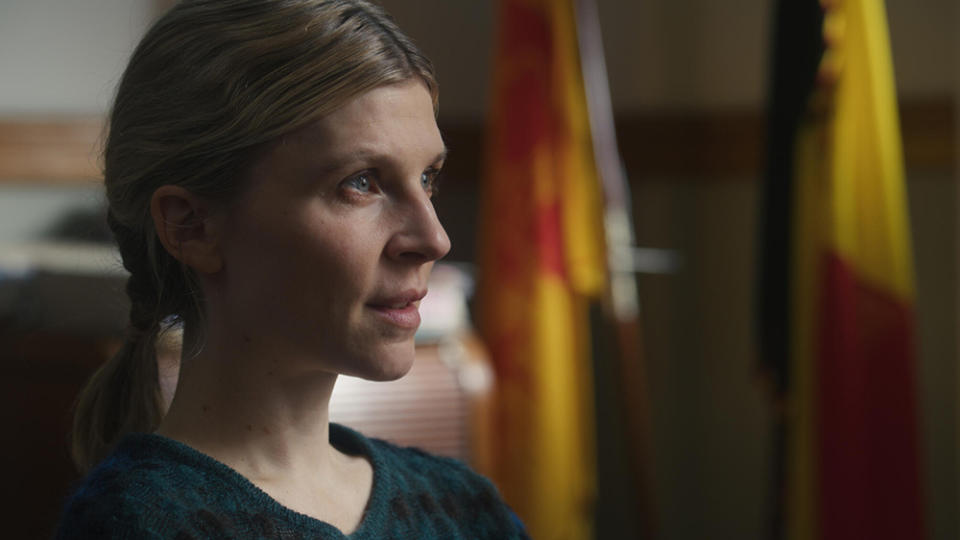French True Crime Breaks Barriers at Home and Abroad

French true crime broke barriers this year when the non-fiction miniseries “Unsuspected” premiered at Series Mania.
Such a showcase is rare for a factual program, but then, “Unsuspected” is a no common doc. Bringing together a pair of filmmakers with respective backgrounds in narrative features and investigative reporting, the four-part inquiry into a maddening 1970s cold case mixes archival accounts with textured recreations, making for a project that defies easy categorization.
More from Variety
APC Set to Wow Unifrance Rendez-Vous Buyers With Rural Mystery Thriller 'The Eclipse'
French Animation Producers Adapt as Global Commissioners Tighten Their Belts
“Clearly, the boundaries are becoming blurred,” says France TV Distribution’s Julia Schulte. “Is this fiction? Is this a documentary? It’s hard to say – and we’re getting to a powerful place where those lines are harder to draw. However, what’s abundantly clear is that the series is very, very entertaining.”
Produced by Imagissime boss Elodie Polo Ackermann – the creative exec behind Netflix breakout “Who Killed Little Gregory?” – the Series Mania selected miniseries accented a spellbinding storytelling as it followed a Parisian psychiatrist obsessed with closing the book on a string of sexual assaults and homicides left unresolved for more than four decades.
With clean lines and narrative heft, the title blazed further trails since the Lille showcase, now that France TV will broadcast the series in a primetime fiction bloc. And the program is one many pushing the true crime genre forward.

“The two worlds are coming together more than ever before,” says Schulte. “Normally, the boxes are strictly separate. Doc buyers don’t usually go for fiction, and vice versa. But now we can see more permeability between the two because French producers have shown what’s possible.”
Indeed, French talent played a major role in the true crime boom; as director of the seminal 2004 miniseries “The Staircase,” Oscar-winner Jean-Xavier de Lestrade could easily call himself godfather of the genre. Of late, the godfather’s been working on scripted, showrunning limited series like the HBO original “Laetitia” and critically acclaimed “Sambre: Anatomy of a Crime.” Whether retracing a 2011 murder case or more than three decades of sexual assaults, both used true crime as a frame for wider sociological concerns.
The results have been stellar. “Sambre: Anatomy of a Crime” broke records in primetime when it aired on public broadcaster France 2 last winter, scoring more than 4 million viewers per episode and earning an average market share of 19%. The limited series drew another 3 million views online and nearly 6 million VOD plays.
Other filmmakers have found success reopening the same case in two different iterations. Production outfits La Dame de C?ur and Effervescence first explored a 1970s murder with the 2022 crime doc “The Agnes Leroux Affair: Confidences of a Convict,” before bringing out the glitz and polish for the scripted version, “French Roulette – A Mother’s Ordeal.” Set in Nice, the latter series was scooped up by Paramount, and was the first French original when the Paramount+ platform launched in Gaul.
And while true crime remains a driver across the U.S., Scandinavia and Germany, France TV’s Julia Schulte believes that settings like the Cote d’Azur in “French Roulette” and the Paris of “Unsuspected” can lend those titles a lot more cachet while helping the French series stand out in international markets that already have strong local production.
“There’s a lot of powerful imagery associated with France,” she says. “As we’ve clearly seen with the Olympics, Paris remains quite magical for the whole world, even in English-speaking markets. We’re able to export that too.”

Best of Variety
Sign up for Variety's Newsletter. For the latest news, follow us on Facebook, Twitter, and Instagram.
